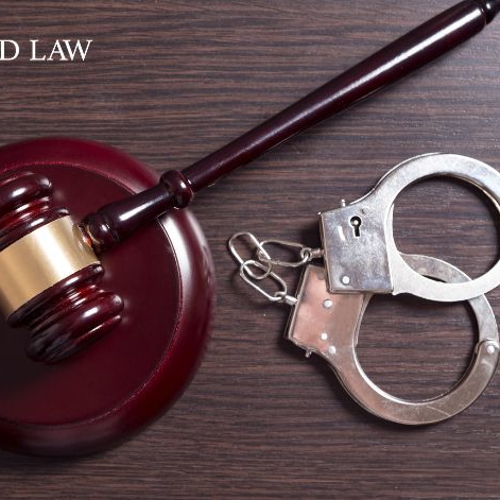
Whether you need criminal defense or representation for a personal injury claim, our team, lead by Chris Crawford, will fight 24/7 to guarantee that your rights are protected. These trial results should inspire confidence.



Pensacola Fraud Lawyer
Understanding Fraud Charges in Pensacola
In Pensacola, navigating fraud charges requires an understanding of both the state and local legal landscape. Fraud charges can arise from various situations, such as business transactions, tax filings, or insurance claims. Given the unique complexities of fraud cases, it's essential to have a clear understanding of the laws that might affect your case. Florida Statutes Title XLVI Chapter 817 specifically addresses various forms of fraud and deceptive practices. This includes understanding how local law enforcement and judicial practices handle such cases, which can differ significantly from other jurisdictions.
At Crawford Law, we recognize the importance of locality in legal proceedings. Our knowledge of Pensacola's courts and legal practices ensures a thorough defense tailored to the specific nuances of fraud charges in this area. We focus on delivering personalized legal strategies that account for these local factors, providing each client with a defense that's both comprehensive and grounded in a deep understanding of the area's judicial systems.
Fraud is a serious offense in Florida. The state punishes any attempt to defraud, trick, or deceive others. The penalties for fraud are severe, and those convicted face time in prison, heavy fines, and a damaged reputation.
If you have been accused of fraud, you need a dedicated and skilled criminal defense lawyer. Crawford Law can help you with a thoroughly investigated and well-prepared defense strategy designed to give you the best chance of a favorable outcome. We understand the stress and uncertainty you are under and how important it is to have a representative you can trust.
Chris Crawford will put in the effort and time needed to ensure that your case is properly handled. We prepare every case for trial — our firm does not engage in plea deals unless they are in your best interest.
Overview of Fraud Crimes
Fraud is defined as any intentional act of deception, misrepresentation, or concealment of facts to gain an illegal advantage or cause harm to another party. Fraud crimes can be committed against people, companies, and government agencies. These crimes can be prosecuted at both the state and federal levels.
Fraud typically involves deliberate actions intended to mislead or deceive another party, leading to financial or personal gain for the perpetrator. Given the complex nature of these cases, individuals accused of fraud often find themselves navigating a daunting legal process. It is crucial to understand that fraud is not just limited to monetary theft but can also encompass a range of deceptive practices that erode trust and integrity within businesses and communities.
In many cases, individuals accused of fraud may not be aware of the full ramifications until charges are brought against them. This highlights the importance of understanding local laws, such as those specific to Pensacola and Florida, to ensure a robust defense strategy. Florida's fraud laws are stringent, and an effective defense requires knowledge of both state and federal regulations and their applications in local jurisdictions.
Federal crimes involving fraud commonly entail large-scale operations that cross state lines, large groups of people, massive sums of money, and crimes committed against federal agencies, such as Medicare and Social Security fraud. They may be the subject of sophisticated investigations by federal law enforcement, such as the FBI, IRS, and others.
Common types of fraud include:
- Credit card fraud: This involves stealing or using another’s credit card without their consent.
- Check fraud: This is a type of financial fraud that occurs when a person writes a check with insufficient funds or alters checks that do not belong to them.
- Identity theft: Identity theft is committed when an individual or group steals another person's personal identification information — such as their driver's license, Social Security number, or banking information — to commit fraud or other crimes.
- Embezzlement: This is the theft or misappropriation of funds belonging to an employer or organization by someone in a position of trust or responsibility.
- Tax fraud: This is the deliberate act of providing false or misleading information on tax returns with the intent to avoid paying taxes or to claim tax refunds fraudulently.
- Insurance fraud: Insurance fraud occurs when an individual or group intentionally provides false information or conceals relevant facts from an insurance company to obtain payouts or avoid paying premiums.
- Wire fraud: A crime that occurs when an individual or group uses electronic communications or interstate wires to fraudulently obtain money or property.
- Securities fraud: Securities fraud occurs when someone deliberately misleads investors to manipulate stock prices or obtain a profit.
- Bank fraud: This involves using false information or trickery to obtain assets, credit, or other benefits from a financial institution.
- Mortgage fraud: Mortgage fraud is the act of providing false information or misrepresenting oneself on a mortgage application to secure a loan for a property or obtain a loan modification.
- Consumer fraud: Consumer fraud involves false advertising or the misrepresentation of goods and services with the intent of obtaining payment or gaining financial advantage.
- Investment fraud: This is a type of financial fraud that involves misleading or deceiving investors to make a profit from investing in a particular scheme or product. An example of this is a Ponzi scheme.
- Healthcare fraud: This is a crime in which false, deceptive, or misleading claims are made to receive payment for healthcare services or supplies that were never provided or were unnecessary.
- Medicare fraud: Healthcare fraud specifically targets the Medicare program through the submission of false claims or billing for services that were never rendered.
- Welfare fraud: A type of fraud in which individuals or businesses falsely claim welfare benefits or assistance programs that they are not entitled to receive.
- Social Security fraud: Any act of deception or misrepresentation aimed at defrauding the Social Security Administration or taking advantage of its benefits program.
Fraud Penalties in Florida
The penalties for fraud in Florida vary greatly depending on the nature of the crime, the amount of loss incurred, and other factors. Penalties for fraud in Florida often include significant fines, restitution payments to victims, and potential imprisonment. In some cases, fines can reach up to $15,000 for each count of fraud.
Additionally, individuals convicted of fraud can face a range of future consequences, such as difficulty in securing employment, loss of professional licenses, and the social stigmatization that often comes with a criminal record. Fraud is associated with dishonesty, which means the jeopardization of important life opportunities for careers, advanced education, and more.
Considering these harsh outcomes, navigating Florida's legal system with a knowledgeable attorney becomes essential for anyone facing fraud charges. Understanding the intricacies of state-specific penalties can provide you with the foresight needed to plan effectively and potentially mitigate the consequences. It's vital to remember that the impact of a fraud conviction extends beyond immediate penalties, affecting long-term personal and professional prospects.
Fraud charges can affect different areas of your life, from ruining professional relationships to creating financial strain due to high legal costs and potential restitution. Recognizing the seriousness of these repercussions underscores the importance of proactive defense measures. Those facing fraud charges should seek comprehensive legal guidance immediately to focus on developing strategies to reduce or dismiss charges.
Navigating the Pensacola Court System
For those charged with fraud in Pensacola, understanding the local court system can provide a significant advantage. Pensacola is served by the First Judicial Circuit Court of Florida, which handles all felony criminal cases, including fraud. Familiarity with court locations, such as the M.C. Blanchard Judicial Building, and the specific judges who might hear your case can offer insight into how your case will be managed. Knowing the procedural nuances of this system allows for more effective preparation and strategy.
In addition to the circuit court, Pensacola's legal proceedings are supported by both the State Attorney's Office and the Public Defender's Office, each playing a crucial role in the judicial process. Engaging with these entities efficiently requires an understanding of how they function within the local context. This local knowledge is one of the key strengths of Crawford Law, which enables us to present a well-rounded defense by leveraging our experience and understanding of the system.
Potential Defenses for Fraud
While each case is unique, several potential defenses may be used in fraud cases.
Lack of Intent
One of the most common defenses in fraud cases is to argue that you did not have the intent to deceive or defraud. This can be a strong defense if you can prove that you did not knowingly or intentionally deceive anyone. For example, if you made a mistake or provided incorrect information unintentionally, this can be used as a defense against fraud charges.
Building a credible defense around lack of intent requires presenting clear evidence and often testimony. This may involve demonstrating your lack of knowledge about the fraudulent nature of a transaction or showcasing circumstances that led to the unintentional misrepresentation. Engaging a skilled legal team familiar with local precedents can make a significant difference in crafting a defense that resonates well with the court.
Understanding local jury perceptions and how fraud is typically prosecuted in Pensacola courts can add depth to your defense strategy. This awareness allows attorneys to tailor arguments narrowly focused on details that may resonate with local legal norms, enhancing the credibility and effectiveness of your overall legal strategy.
Lack of Knowledge
A lack of knowledge defense means that you did not know you were engaging in fraudulent activity. This can be a viable defense if you can prove that you did not fully understand the circumstances or implications of your actions. For example, if you were misled or coerced by someone else into committing fraud, you may be able to argue that you did not know that what you were doing was illegal.
Entrapment
Entrapment is a defense used when someone is induced by law enforcement to commit a crime they were not predisposed to commit. In fraud cases, this may happen if a government agent or informant pressures or encourages an individual to engage in fraudulent activity. Entrapment can be challenging to prove, but it may be a viable defense in some cases.
Lack of Evidence
If the prosecution lacks sufficient evidence to prove their case or if the evidence was obtained illegally, this defense may be used. For example, if the prosecution relies on hearsay evidence or evidence that was obtained through an illegal search, you may be able to argue that the evidence is inadmissible and have the charges against you dismissed.
Frequently Asked Questions
What Are My Rights if I'm Charged with Fraud in Pensacola?
If you're charged with fraud in Pensacola, you have specific rights designed to ensure fair treatment under the law. Firstly, you have the right to remain silent and not incriminate yourself during questioning by law enforcement. Additionally, you are entitled to legal representation, and if you cannot afford an attorney, the court will provide you with one.
Understanding local legal processes is essential, as Pensacola's courts adhere to specific Florida statutes regarding fraud. Engaging a local attorney from Crawford Law means you have someone who understands these intricacies and will work diligently to protect your rights fully. It's also important to recognize your right to a fair trial, where the burden of proof lies on the prosecution to establish your guilt beyond a reasonable doubt, ensuring that all evidence against you must be presented lawfully and justly.
How Does Pensacola Handle Federal Fraud Cases?
Federal fraud cases in Pensacola are handled with a high degree of scrutiny, often involving sophisticated investigations by federal agencies such as the FBI, IRS, and SEC. Given the complexity and severity of federal charges, these cases require a detailed defense strategy tailored to navigate both federal statutes and local court processes within the First Judicial Circuit Court of Florida. When charged with a federal fraud crime, you typically face investigations that cross state lines or involve significant sums of money and numerous individuals.
Understanding the specific procedural guidelines followed in Pensacola, as well as federal court requirements, is imperative for anyone facing these charges. Therefore, partnering with an attorney from Crawford Law provides you with the knowledge and experience necessary to handle the prosecutorial challenges associated with federal fraud allegations while ensuring strong local representation.
What Should I Expect from a Fraud Trial in Pensacola?
Navigating a fraud trial in Pensacola involves understanding the different phases and expectations of the local judicial process. Trials are conducted in the First Judicial Circuit Court, where formal procedures are strictly followed. Initially, you should expect pre-trial motions and potential plea bargaining discussions, especially with the State Attorney's Office, which prosecutes these cases. This stage is crucial for clarifying the charges and potential strategies.
During the trial phase, both sides will present their arguments, with witnesses testifying and evidence being examined. The local legal community in Pensacola operates with specific expectations, and judges play a pivotal role in maintaining trial decorum and impartiality. Having representation from Crawford Law, with an acute understanding of these practices, ensures none of your rights are compromised and allows for a focused approach to achieving the best possible outcome.
Contact Crawford Law Today
If you have been accused of fraud, the time to act is now, even if you have not been arrested or charged. Our firm can provide you with protection, guidance, and support that could play a major role in getting charges dismissed, reduced, or result in other favorable outcomes. Crawford Law has been representing clients for more than a decade in both state and federal courts and works vigorously in fighting for your best interests.
Reach out to Crawford Law to schedule a confidential consultation with our Pensacola fraud attorney at (850) 220-2098 or contact us online.
Our Settlements & Verdicts
Recent Case Victories
-
$800,000 Townhouse Community - Hurricane Irma Claim
-
$4,000,000 JR - Trial Verdict Slip and Fall Injury
-
$350,000 JR - Commercial Truck Crash
Our Blog
-
I Was Arrested for the First Time in Florida—Now What?

-
Can Your Open Criminal Case Impact a New Job or Move?

-
Can a Bar Be Held Liable for a Drunk Driving Accident in Florida?

-
Different Ways a Juvenile Record Can Impact a Life

-
Who Can I Blame for Injuries on Another's Property in Florida?

-
How to Prove Liability in a DUI Car Accident Case






